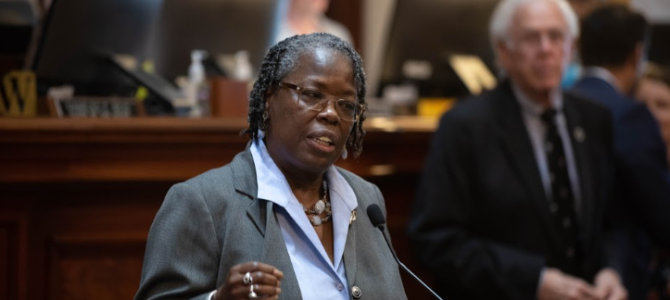Last week, the General Assembly passed H. 3309 in a historic unanimous House vote. The bill, authored by Representative Gilda Cobb-Hunter of Orangeburg, requires the State Law Enforcement Division (SLED) to create and maintain a statewide tracking system for sexual assault evidence, also referred to as rape kits.
This bill is a milestone for South Carolina. The state has a disgraceful track record of rape kit backlogging, something that has been rarely addressed by legislators but has an enormous impact on the pursuit of justice for sexual assault survivors.

According to End the Backlog, South Carolina is home to approximately 1,800 untested rape kits. But with over a hundred agencies lagging in their reporting, the final estimate of untested kits is likely to be much higher. The Greenville County Sheriff’s Office alone reported over 500 untested rape kits last May.
As law enforcement was not mandated to track, count, or test these backlogged rape kits prior to the passage of H. 3309, many survivors were left with no information regarding the status of their case. Many were not even notified when their kits — and their chances of securing justice — were destroyed.
This backlog created a climate in which sexual assault survivors were unable to rely on law enforcement to hold perpetrators accountable, even after they put themselves through such an invasive procedure like rape kit collection. This legislation brought forth by House Democrats seeks to change this status quo and end the rape kit backlog.
H. 3309 does a couple very important things that help push South Carolina forward in protecting its assault survivors. First, it mandates the tracking of all sexual assault evidence, regardless of when it was collected. Second, it provides survivors with information regarding their rape kits throughout the entire criminal justice process — from its initial location in storage to its completed analysis and eventual destruction.
Although the bill does not commit any agencies to the testing of these backlogged kits, it still represents a considerable step forward for survivors. This bill tells survivors that they matter and that justice matters. It also highlights the commitment of our state legislature to fixing the flaws in our criminal justice system, not just for sexual assault survivors, but for anyone wronged by the current criminal justice process.


